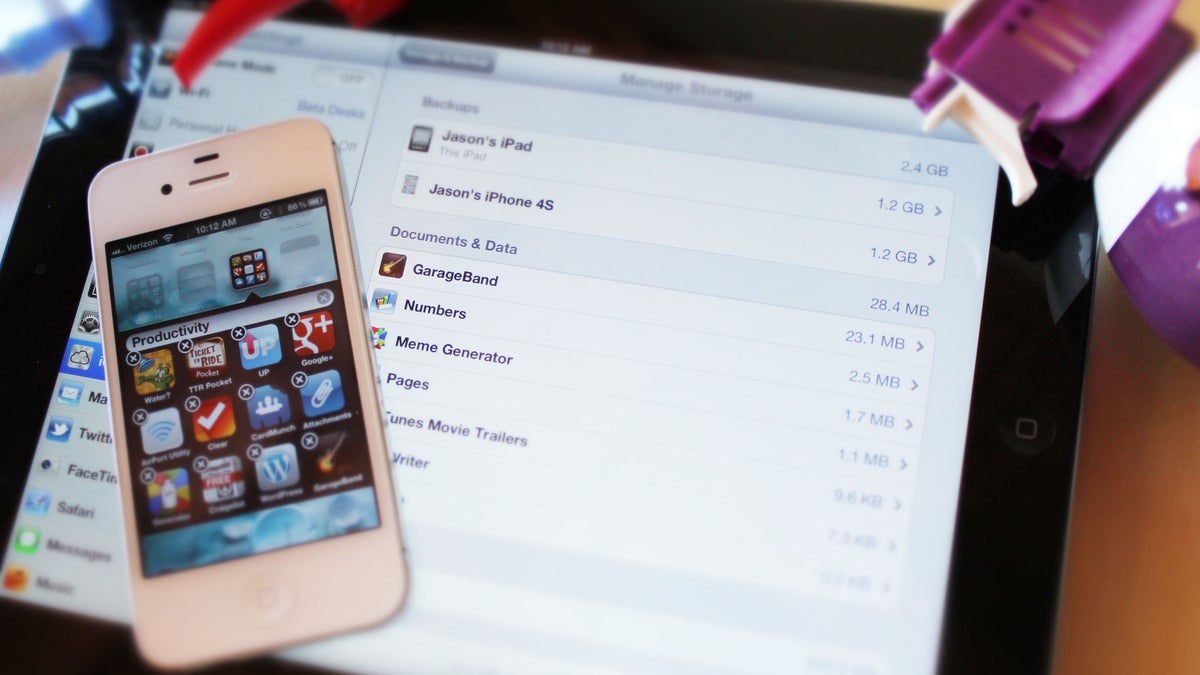AT&T vs. Verizon: Who has the better shared data plan?
While the two wireless carriers offer similar options, there are subtle differences. CNET breaks them down.

With AT&T officially announcing its "Mobile Share" plans and joining Verizon Wireless, there will soon be two options for customers who want to get into a family plan for data services.
While these plans aren't the best deals for individuals, large families or even groups of really, really close friends may want to consider them. That's because the more people who sign on, the lower the price per gigabyte and user. Of course, if someone is a heavy data user, that person may want to stick with an individual plan, or risk hogging up the total available data for everyone.
By and large, the plans are fairly similar. But there are some subtle differences to what each carrier offers, including entry point and difference in smartphone fees. The following is a breakdown of the two plans:
All of the plans come with unlimited text messaging and voice minutes. To connect additional devices, both carriers charge a monthly fee. A basic phone costs $30, a laptop, Netbook, or USB card costs $20, and a tablet costs $10. Both charge a $15 fee for each gigabyte consumed on top of the limit, although Verizon allows customers to buy an additional 2GB of data for $10 if they are approaching their limit.
The carriers have slight variations on their plans. Individuals who don't use a lot of data and are considering the entry-level option would save a bit of money with AT&T, although those savings are negated when a second person jumps on the plan because of the higher smartphone fee.
Verizon, however, offers a more a gradual increase to 2GB, while AT&T skips it altogether in favor of a jump to 4GB. The 4G plans, both of which are equal, are likely to be a popular one for couples since 2GB each is what you would get under an individual tiered plan at AT&T. At a total of $150, it offers a slight discount to some current plans with shared minutes and text messages.
At the 10GB mark, however, Verizon gets the edge if an individual was buying into that plan. But the price is the same if a second person signs on to the plan, and is actually a better deal if more members join. That's because while Verizon's smartphone fee is consistently $40 per handset, AT&T's fees drop slightly as the plans go higher, hitting a low of $30 per handset for the three most expensive options.
Both Verizon and AT&T offer higher capacity plans for families that are really into data, including pricey 15GB and 20GB options. Verizon actually offers several more plans, although it doesn't publicize them, increasing by 2GB increments to 20GB.
Verizon or AT&T could also tweak their plans down the line.
Of course, customers aren't just going to rely on shared data options when they make their decision on carriers. Other factors, including phone selection, coverage, and customer service weigh in on a decision. These plans just add a new wrinkle to consider.
Verizon's plans are available now, while AT&T doesn't launch "Mobile Share" until August. So there's plenty of time before deciding between the two, or just sticking with an existing individual plan.
Updated at 6:59 a.m. PT: to include additional Verizon plans, which weren't heavily publicized, and to add the plans to the Verizon chart.

